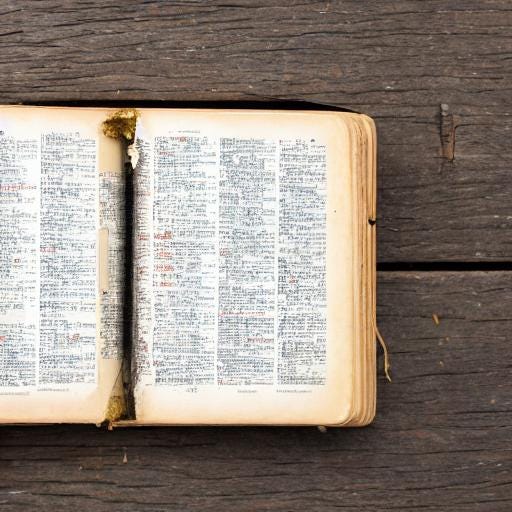Pocketful of words
About an enduring love for words, sparked by an old pocket dictionary and a father who pushed me to find joy in its pages, in a new section, 'World of Words'
Words have been my currency for as long as I can remember.
My enduring love for words started a long time ago when my father gave me his old pocket dictionary, one he had used as a child. He stressed the word, pocket, saying that it was portable, that I could take it to school if I wished to.
The summer vacation that followed was a summer of glorious discovery and enchantment. The dictionary and I were inseparable. Dad told me to learn five new words every day and to share with him the meanings when he returned home after work.
“Use the words in a sentence,” he’d tell me. “Use each word five times, and it’s yours for life.” The idea appealed to me and I got cracking. I owe my vocabulary to my father. To the spark that his words ignited.
I was always asking him for meanings of words. He may or may not have given me the dictionary to keep me busy. But I was hooked.
I used to write the meanings of the new words I learned in a notebook, with a few pronunciations in the Devanagari script which is phonetic, and therefore a more stable guide for pronunciation.
That copy of the dictionary was old and threadbare even then. It was what we used to call used or second-hand, in those days. Today the preferred term is pre-loved. But that dictionary was more than pre-loved. It was loved to bits. Literally.
The pages were loose, ripped out of the stitching. Not that it lessened its value in my eyes. I proceeded to give it much love.
That summer vacation, I learned so many words that my 100-page notebook was nearly full. At one point, my brother asked me if I planned to re-write the entire dictionary.
When school reopened that year, I was in Class 5, and my class teacher was the wonderful Ms Padmini Nair (more about her in another post). She asked us to carry a dictionary to school every day. While the other girls groaned, complaining about the extra weight, I was thrilled to take my copy to school.
All through that school year, Padmini Miss, who taught us English, would ask us to find meanings of words in our dictionaries. No other student could find words as swiftly as I could. I had leafed through the pages so frequently that I had no trouble landing on the right page.
On the playground, I was used to bringing up the rear, but in the race to find word definitions, I was an Usain Bolt, breasting the tape at the finish line while my classmates were still trying to locate the right page.
That summer must have cemented my love for language. It must have been the time when consciously or otherwise, the little cogwheels began to turn in my mind, giving me a hint as to what I should do with my life: something that involved words. I am grateful that life obliged my childhood aspirations.
“The limits of my language mean the limits of my world,” wrote the Austrian philosopher Ludwig Wittgenstein. Our words define and give shape to our reality, our world. If we don’t have the words to express something, then we become incapable of expressing or articulating that thing.
As I grew older, I began to be just as fascinated by other languages. By the fact that all languages included certain words which had no equivalent in others. Words which were virtually untranslatable. The realization once again expanded the reaches of my world.
In keeping with the times, that 100-page notebook of yore is now online, filled with many words, each fascinating, inspiring, enchanting, imbued with stories that have enriched my life. I look forward to sharing those words with you in a new section called “World of Words”.
I no longer own that dictionary. I lost it somewhere when we moved house. Or maybe the pages disintegrated over the years. But the enduring love that the pocket wonder sparked within me continues to burn bright.



In recalling the treasured memories we really relive the happy times
Well done Cynthia your command over the language is commendable